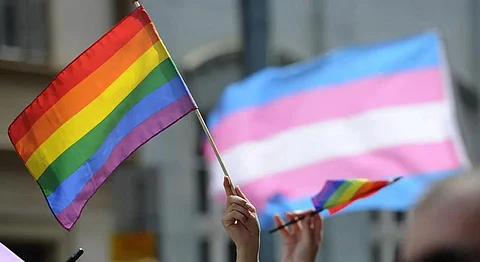
- HOMEGROWN WORLD
- #HGCREATORS
- #HGEXPLORE
- #HGVOICES
- #HGSHOP
- CAREERS
- ABOUT US
- CONTACT US

Acclaimed social justice activist and psychotherapist Vikki Reynolds defines an ally as, “a person who belongs to a group which has particular privileges, and who works alongside people from groups that are oppressed in relation to that privilege. The hope is to create change and increase social justice in relation to this oppression.” She also mentions how the field of queer theory has “brought many gifts to ally work, especially the idea that being an ally is a performance, something we do together across the differences of privilege that divide us. Queer theory frees us from taking on being an ally as a static identity, which could require being perfect and always getting it right. Queer theory invites fluidity, movement from the fixed and certain to the confused and unstable.”
Allyship does not equal neutrality. It is a process of re-learning and unlearning concepts which had, initially, thought to be the unifying human experience. It takes certain plasticity and participation to not only support but to accept every individual around you. In our educational spaces, workplaces or our homes, it is important to practice radical acceptance of the self. While talking about fostering a community of allyship, especially in corporate settings, Srini Ramaswamy, the co-founder of Pride Circle, says, “when creating a safe space we need to look at how the policies are. Is there same-sex partner insurance? Gender-neutral lease? And is there support from the manager or HR in-charge when a queer employee is taking hormonal therapy?” Infrastructure is needed to be able to support the diverse voices within the society we live in. The societal structures–-workplace, schools and religious institutions, need to evolve. Being an ally is pushing towards a revolutionary re-imaging of the world we live in and being self-mandated with the process of allyship is a life-long voyage.
Ally work is centred around various positions of power. Understanding our spatial positions while being an ally is incredibly important. Pinkwashing also should be actively avoided. Ana Vales, on Vox, succinctly describes that “being a good LGBTQ ally isn’t so much about slapping rainbow branding onto a product as it is amplifying queer life experiences.” The importance of being an ally is multifold. An ally creates a supportive environment for everyone who inhabits a certain space and is a minority. Feelings of not belonging are not only detrimental to an individual but have a cascading effect on the quality of our societies. Freedom of expression and a right to life should exist not only as constitutional writs but in our everyday lived reality. An ally’s duty in some ways is to ensure those who do not look like the majority are structurally included and honestly feel like they belong. But, this also does not mean stripping away their individuality or gender identity to assimilate, in a sense, it is also an act of radical acceptance on our idiosyncratic yet shared humanity.
Here is a list of online resources on allyship and the LGBTQAI+ community that would help us all become better allies:-
A shortlist of films that showcase queer lives :-
Pride Circle also has a large variety of resources on how to be an ally. You can click here to view their repository of resources and their #21DaysAllyChallenge.
If you liked this article we suggest you read:
